Yucatan News: Laws, Children & Honey
Calderon Changes Mexico's Justice System Early last week
President Felipe Calderon signed legislation that changes the judicial system in Mexico from one of "guilty until proven innocent" to "innocent until proven guilty." This is important legislation because it will put an end to individuals being arrested for unknown or obscure reasons, including the whim of some less than honest law enforcement officers. Instead, local and state law enforcement will now be able to conduct investigations into criminal matters and make certain that their cases are strong prior to arresting individuals. Since only federal agencies had these investigative powers in the past, this new law will make it possible for local and state law enforcement to further investigate drug cartels and other major crime situations. Overall, this change is an historic human rights milestone for Mexico and should be lauded as such.
New Problems With Decreto 801
The new "beach law," as it is called by most, seems to have enough problems with its wording to result in El Colegio Yucateco de Arquitectos asking for its repeal and replacement. One problem lies with the fact that our beach law is so much more comprehensive and takes in such a larger area than does the federal law. The other problem with this law is that the definitions are not specific enough. For example, there is not only the question of what is a dune, but also the question of who is to define a dune. Finally, there is the unanswered question of where does the boundary actually lie? If we draw a line in the sand today and declare it to be a line that is 20 meters from the water, what happens if the beach gets smaller or larger at that site? Do we move the line or does it stay where it was? ...and at what point in time would the line become arbitrarily stationary, if ever? These might seem like inconvenient and time consuming issues to resolve, but they are extremely important to those who own property on the beach, as well as to those who are considering buying there. We will certainly let you know as soon as we hear anything on this topic.
The Amazing World of HUNAB
Have you seen the website for HUNAB? It reads like something published by a corporate headquarters somewhere in a global business hub. HUNAB's equivalent of the Chief Executive Officer and the Chief Operations Officer each have 6 years of successful experience on the job - and they are 15 and 13 years old, respectively! Yes - you did read those ages correctly! We never - ever - cease to be amazed by the children of Yucatan - or by a state that allows them to dream their dream of a better world, and then gives them the tools and training to make their dreams come true. Below is the information on HUNAB's Summer Program but you really must read their site... even if you have to use Babelfish to help you.
Name: HUNAB Project for Life, AC
Teachers: Children and adolescents with 2 or more years of experience as members of HUNAB
Purpose: To Guarantee sustainable development through comprehensive environmental education. To develop each age group of children as teachers and promoters of environmentally sound behaviors.
>
Activities: Teaching environmental protection and sustainability, collecting blankets and toys for Christmas, cleaning local beaches, teaching children and adolescents how to take care of nature, aquaculture, snail breeding, dog rescue, etc. (the list goes on and on and on!)
Summer Program: Programa Intensivo de Orientacion Protegiendo a la Ecologia y al Ambiente (Intensive Orientation Program for the Protection of Ecology and the Environment): Children spend their summer vacation learning about biodiversity, recycling, saving water and visiting eco-tourist zones.
Believe it or not, one 11 year old little girl started this program in 1995. By 2003, they had this summer program underway, and no one in the public even knew they were here until the State Fair of 2004. They have been steadily growing since then and have, quite kindly, made room for us older folks as volunteers in their organization. Spend some time on their website to see all they do and all the ways we can help.
Address: Calle 17 # 329 x 12 y 14; Colonia San Jose Vergen C.P. 97167; Merida, Yucatan, Mexico
Fax / Phone: +52 (999) 983-4744
Website: HUNAB
Donations: BANAMEX 4080 103020 under the name of HUNAB Proyecto de Vida A.C.
Ecology Kids in Valladolid
Lest anyone think that any single group of children has a corner on the market of environmental education, such is certainly not the case in the state of Yucatan. This past week, the students of Secondary No. 6, in Valladolid, gave talks in all of the municipality's primary schools on everything from water conservation to recycling and nuclear power. These kids are heavy hitters and, given this much training and experience at this young age, are sure to play a major role in the environmental future of both the State of Yucatan and the entire nation of Mexico as well. One gets the distinct feeling that we are living on the cusp of worldwide change. In fact, we are absolutely certain that this environmentally savvy and politically powerful young Yucateco generation already has made the world a better place - and will continue to do so throughout their lifetimes.
Recreational Encounter for Pre-schoolers and Parents
This past week, 2,500 preschoolers, with enough parents to bring their numbers to nearly 28,000, came from 28 schools throughout the state for what was billed as a recreational encounter at Kukulcan Sports Center. The day was so successful that they are going statewide with the program next year. If this isn't one of the best "nation building" tools in the world, we don't know what could be. Unite the statewide kindergarten population and their parents, keep them in touch through the years, and they will form a state that anyone would be proud to call home.
Valladolid: Newly Named Honey Capital of the World
Mark your calendars and plan your trip - to Valladolid, which will accept the honor of being named the Honey Capital of the World on July 31, 2008. This celebration will mark the end of the Honey Expo that will be taking place in Merida on July 28, 29, 30 and 31. On the 31st, a statue of the Mayan Goddess of Honey, will be installed in Avenue Zaci Hual in Valladolid. This should be interesting, since a review of the literature gives conflicting names for this goddess. We are curious to discover who she really is. Beginning December 1, which is the Day of the Beekeeper in Yucatan, there will be special events to commemorate the recognition of Valladolid as the Honey Capital of the World. Oh - and... by the way...
Yes, there is a Beehive and Honey God. His name is Ah Nucen Cab. Unfortunately, he seems to be particularly fond of honey made from the flowers of the X'tabay. He is always depicted with bee wings and, if he's been eating that kind of honey, there can be no doubt that he really does believe he can fly... how straight and in what direction may be another matter entirely. Congratulations to Valladolid on your newest honor. We'll see you there!!!
Persian Lemons and Mandarin Oranges
The Office of Farming and Fishing Promotion for the State of Yucatan has given 160 farmers, in Panaba, a total of 500 Persian Lemon and Mandarin Orange trees. These programs are ongoing and make it possible for our small, rural producers a chance to compete in the global marketplaces that have become so profitable for today's Yucateco farmers.
Ucu to Get Professional Soccer Field
Our little Ucu is turning out to be quite an up and comer. All kinds of businesses are moving to what old timers used to call "way out there." Now, of course, this tiny little town is going to be home to the most modern soccer field in the southeastern section of the nation. The project is going to cost between 28 and 30 million dollars, and will be able to handle 28,500 fans at any one event. The new stadium will have a total of 250 VIP boxes. There will be plenty of parking and restaurants and the whole thing will also be accessible to those with physical handicaps. The happy occasion that sparked all of this activity was the elevation of Merida's own Los Venados (The Deer) to Class A Division status. Construction on the new stadium will begin in January 2009 and should take approximately 2 years to complete.
Hawksbill Turtles Moving South
As the oceans of the world continue to warm, many hawksbill turtles have decided to abandon Yucatan's shores for the cooler ocean currents in Belize and points south. This phenomenon is important to us for two reasons. First, the Yucatan Peninsula has always been the premier breeding ground for this particular turtle. We are now losing that position at an increasingly rapid rate. Second, and far more important, is the fact that environmental events such as this bring it home to us just how much trouble our planet is actually in. Some would point to the fact that the turtles are not dead, they are just moving away. To that we would reply: "Our point exactly! They are moving away from here!" There may be nothing we can do to stop this, but we can work with our environmental groups to repopulate our turtle numbers and do what we can to create a better home for them.
2008 Gulf of Mexico Dead Zone
The dead zone, caused by algal blooms (red tides) will be larger than ever this year (in fact, we have heard that the beaches at Progreso and surroundings are already seeing a lot of dead fish, a prelude to the red tide coming to shore here). The increase is due to the increased use of fertilizer and flooding along the Mississippi River and its tributaries. Combine new lawns and golf courses on a limestone shelf, plus flooding such as we saw in 2007, and it is easy to see how this situation may come to Yucatan if we are not very careful. Several of our readers are professionals in this area, some retired and some still working. We thought that a link to the Gulf Hypoxia Action Plan 2008 might be of interest to them and to many of our other readers who are interested in what can be done to preserve our unique coastal areas in the future.
Yucatan's Forests - Plants of Value
In a just published 2004 Report, researchers have now concluded that the ancient Mayans, however loosely we define their activities, actually "farmed" the forests of the region, especially between AD 600 and 900, and all the way up until 1100 AD. We know because there is a preponderance of valuable plant species in the jungles of the peninsula, because some of our valuable plants exist nowhere else in the world, and because plants of little or no value are conspicuously absent in jungles throughout the peninsula. This is, statistically, not an accident, no matter how "wild" our jungles seem to be.
Food Prices Frozen in Mexico
June 18, 2008: The President of Mexico has frozen prices on 150 food staples until at least the end of the year. This goes along with his earlier declaration that he absolutely will not allow the world's economic problems to fall on the backs of the poorest families of Mexico. This move is expected to rescue the food budgets of over 26 million Mexican families. Click here for the full list of products with now frozen prices and here to read the press announcement in English.
The Oil Solution: Bug Poop?
While almost everyone on the planet is locked in mortal combat over oil, it has just been announced that researchers have genetically engineered a tiny bug that eats agricultural wastes (wood chips, wheat straw, etc.) and excretes the carbon negative equivalent of crude oil. No need to reengineer anything - just grow the little buggers and enjoy a pollution free world. It is estimated that it would take a facility about the size of the City of Chicago to completely replace the oil and gasoline needs of the U.S. This project has such potential that it is being funded by Vinod Khosla, the Indian-American entrepreneur who co-founded Sun Microsystems, and headed up by Bob Walsh, formerly of Shell. Estimates are that the final product will be "oil" at approximately $50 USD per barrel. A demonstration facility will be in operation by 2010 and they will be online and in full production by 2011. If this, and other newly discovered means of producing oil substitutes (such as Yucatan's 5,000 acres of Jatropha curcas trees), come to pass on a commercial level, it will be interesting to watch as every single global bully has their favorite weapon of coercion snatched from their grasp. (TimesOnline)
Baja Out of Gas
We don't know what is going to be the ultimate solution to the gasoline problem, but somebody needs to do something soon. Americans came across the border in record numbers this past weekend and gasoline supplies closest to the border were not sufficient to keep up. Some stations have put a $100 USD limit on individual customers and some are using terrible dollar to peso conversion rates to discourage the Americans, but nothing seems to be working. In addition to running out of gasoline over the weekend, some stations are now getting less than their usual shipments because the American gasoline purchases have now begun to eat into our short-term reserves. Our gasoline is heavily subsidized by the government of Mexico, which cannot long afford to keep Americans on the road in the U.S. Hopefully, this situation will soon be cleared up, especially as Snowbirds get ready to drive back to Yucatan. (Sign On San Diego)
Salmonella Scare Now Affects Mexican Growers
>
Mexico supplies 84% of the tomatoes imported to the U.S. However, Americans should know that Mexican tomatoes are not only grown under the watchful eye of Mexican and American FDA inspectors, but also must pass inspection on the Mexican and American sides of the border! Currently, the U.S. has cleared the importation of tomatoes from six other nations (including Guatemala), but only Baja California in Mexico. We hope that cooler heads soon prevail. (bloomberg.com)
Who Knew? Look What We Found in Yucatan
We love dream-books and thought our readers might like to see one we found online this week. We don't know if Balam Wood Furniture sells retail to the public or not, but it seems like they do. This furniture is built in Tekax, just 65 miles south of the city... who knew there was such a big furniture factory there?








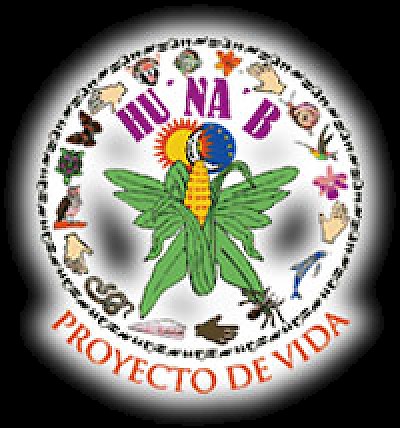
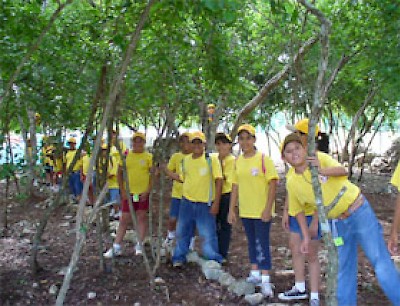
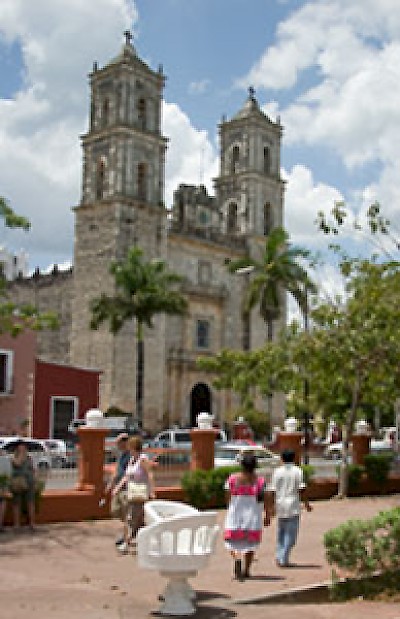


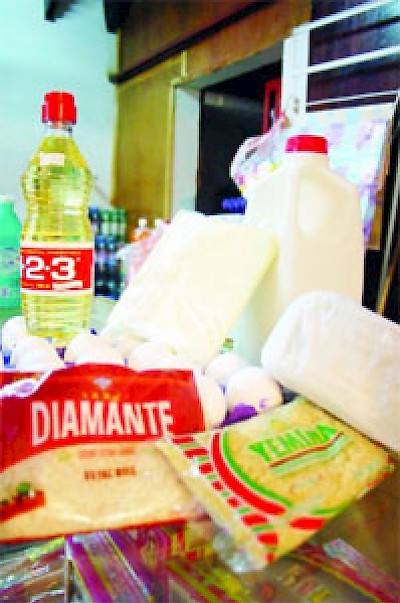
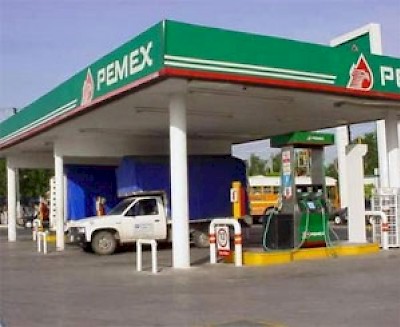

Comments
ECO KIDS 17 years ago
Dear Dear Yucatan, ECO KIDS.
Your opinion would be respectfully and greatly appreciated on this IDEA! If the zillions of kids around the world called ECOKIDS could somehow be brought together as a unified world organization, the positive environmental results could be real and awesome. Become a world member of ECO KIDS!
Reply
kathe o' 17 years ago
has anyone over there seen my friend ron duke? We used to work together for years in Houston Texas and last I heaRD he went to Yucatan possibly to settle down. If anyone knows anything, please let me know or tell him I'm looking to say hi again. Thanks
Reply
Aline Libassi 18 years ago
I love your articles! They are informative and have given me a great deal of information about an area not too far from where my husband and I are thinking about spending our winters. About four months ago my husband and I purchased land in the jungle near Tulum and plan to build a solar home. I am interested in teaching English to business people in Playa or Cancun and have many years of experience as a Spanish, French and Italian teacher, as well as a degree in bilingual education. If there is anyone out there close to where we will be living who could use help in the public schools either setting up an English program or working with kids, I would love to help.
Aline Libassi
Reply
Shirley & Jose A Herrera 18 years ago
The information you provide regarding Yucatan living etc. is just "great"!! It is full of "substance" and a "must read" for all of us who are in the process of moving to Yucatan. You should contact the AAA Association to provide them with a "more accurate" description of Yucatan written by people who can narrate a more positive picture of the Yucatan peninsula and its people. Individuals who "actually live there", like yourselves.!! Thank You !!
Reply
CasiYucateco 18 years ago
Is it irony or fate that these two items appear together: "Microbes make oil out of plant matter" and "Valuable Forest Plants were farmed by the Maya" ? (and then red tides and dead zones?)
Suppose science were to provide us with a microbe that could make oil or gasoline equivalent out of any plant matter. How long would it be until the entire earth is stripped of green living things so that we can rocket along in personal transport devices containing three tons of steel, glass and leather? Would we have the self-control necessary to limit what is done? Or would "individual travel at any cost" rule the day?
We face similar questions in the pursuit of fossil fuels today: how much of nature should be destroyed so we can drive to the mall? Is there maybe some better way of doing things that would also make life more pleasant and sustainable?
A great book to read about "farming of forests" of the Amazon basin and other pre-Columbus history of the Americas is Charles C. Mann's 1491: New Revelations of the Americas Before Columbus. A thick book, but readable language and many surprising revelations.
Much of what we previously believed about inhabitants of the Americas has been overturned by science. Sophisticated cultures, complex managed ecological systems, advanced astronomy, weaving as a form of money; all existed prior to European travel to the Americas. Far from heathen savages, there were cities bigger and cleaner than those in Europe at the time. Certain soils in the Amazon appear to have been "man-made" or "man-managed" over long periods of time -centuries.
Anyway, I'm off track with what I wanted to say. At the same time we begin to realize there are so many valuable plants, we are finding ways to turn plant matter into fuel. Will we have the self-control to manage the situation well? Or, like previous civilizations, will we outstrip the support capacity of the ecosystem and experience as massive die-off caused by our own actions?
Maybe Dead Zones and Red Tides are warnings that will be seen as wake-up calls to bad practices.
Far more energy falls on the earth in the form of sunlight every day than we can possibly use. If we can manage that energy into transportation and electricity, we will not have to consume fossil fuel (stored sunlight) or sustaining organisms (plant life). We can make huge advances in energy systems, if we can break the oil addiction.
Reply
Working Gringos 18 years ago
In the article itself, you'll notice that the name is in green. That means it's a link. Click on the name and it will take you to the website!
Reply
Deb Shepherd 18 years ago
Love your site. So informative and great travel ideas. We live part time on Cozumel, have been in the region 22 years, but learn more by reading your newsletter...
How do I find info on the Balam Wood Furniture store you highlighted this week?
Thanks, keep up the good work.
Deb
Reply
(0 to 7 comments)